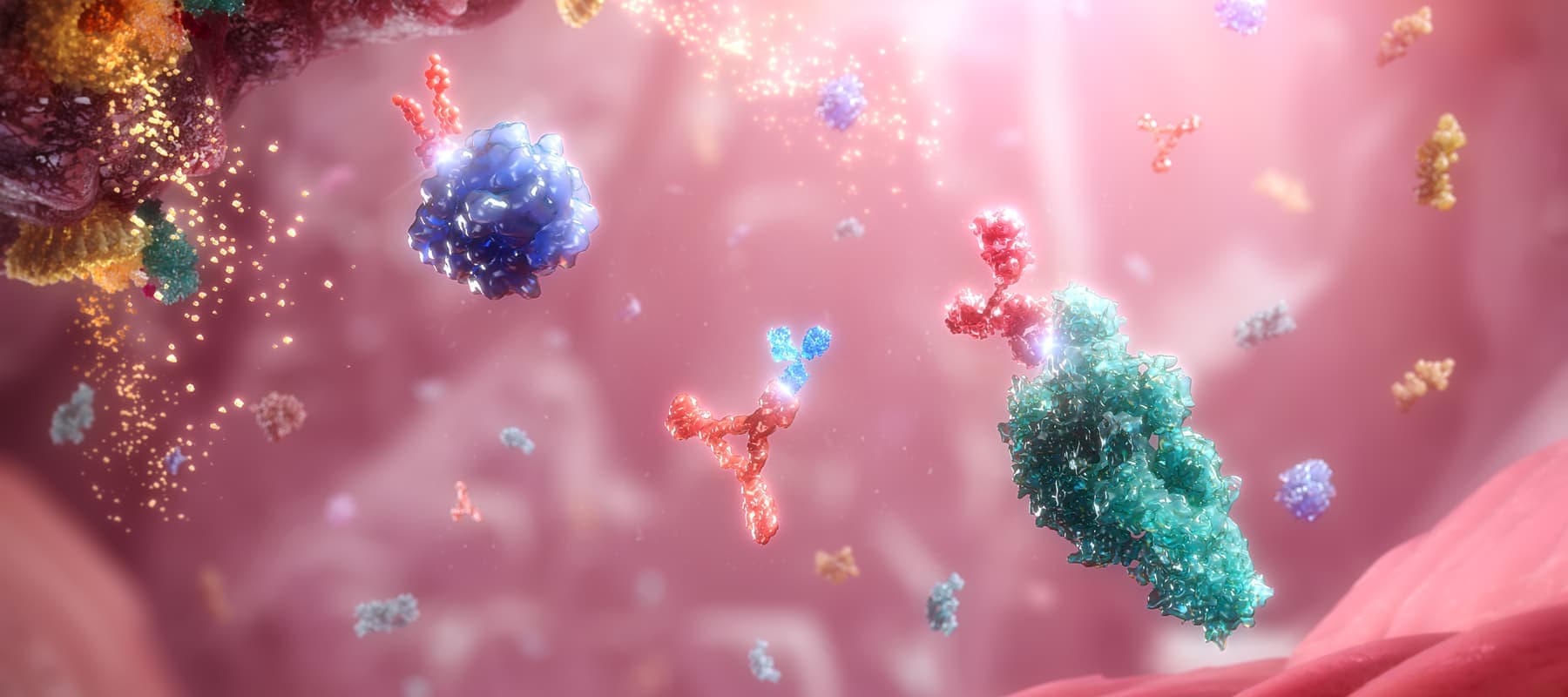
Exploring new frontiers in rare disease research to meet the needs of patients
Collectively, rare diseases affect millions of people worldwide, a number that is growing each year as more rare diseases are identified. These conditions place a substantial burden on patients, caregivers and society as a whole. It’s estimated that rare diseases impact more people than cancer and Alzheimer’s combined, yet most of these conditions have limited or no treatment options. Fortunately, bold science is continuing to drive progress, linking a common part of human biology to some of the rarest diseases.
Specifically, researchers are finding answers in a part of the immune system called the complement system. Despite being an important part of our body’s protection against infection, awareness of this critical system remains low. Problems arise when this system is thrown out of balance, or dysregulated, which can lead the body to attack its own healthy cells and tissues, driving many devastating diseases.
Alexion, AstraZeneca’s Rare Disease group, was the first company to demonstrate the therapeutic potential of selectively targeting the complement system, a journey that began more than 30 years ago. This led to the development of multiple first-of-their-kind medicines for several rare diseases without treatments, including rare and potentially life-threatening blood and neurological disorders. Today, the company is the leader in driving complement science forward and remains at the forefront of innovations aimed at unlocking the full potential of the complement system to bring transformative therapies to rare disease communities.
Gianluca Pirozzi, SVP, Head of Development, Regulatory and Safety at Alexion, shares more about complement science, what’s next, and what this research means for the rare disease community and to him personally.
What untapped potential do you see in complement research?
The complement system is made up of three unique pathways and more than 30 proteins, so we’ve only just scratched the surface of its potential to address many devastating conditions that affect so many people. We believe there is still an incredible opportunity to deliver meaningful treatments through the advancement of complement science, especially in areas where there is significant need.
People familiar with the complement system will have likely heard of the C5 protein, which has been a treatment target for more than 15 years. For several rare diseases, including certain hematological and neurological conditions, our approved therapies focus on inhibiting terminal complement activation by blocking this protein.
We continue to build on our work by exploring the promise of C5 inhibition for other rare neurological diseases as well as certain kidney diseases. We are also investigating new complement targets with a diverse range of molecules that act at multiple points in the complement cascade. For example, we are exploring the inhibition of properdin, or Factor P, and advancing research on the first potential oral Factor D inhibitor as a treatment for several diseases.
Why is Factor D an important target?
Research suggests that inhibiting the Factor D protein may provide a unique opportunity to treat certain diseases. Factor D is an essential enzyme of the alternative pathway of the complement system, which plays a critical role to amplify the complement response. Inhibiting this protein has the potential to block this pathway while leaving other pathways intact to fight infections.
We are excited to advance our Factor D program by first exploring assets that have potential to target certain rare hematological diseases with an oral treatment option. We have heard directly from patient communities about their interest in multiple administration options to fit a variety of lifestyles, and we are encouraged by the opportunity to address these preferences through our continued innovations in complement science.
In addition, we are studying potential synergies with our C5 inhibitors and how this may create new options for a small subset of patients with a particular unmet medical need.
Does Factor D inhibition show potential in other diseases?
In addition to hematology, we see the opportunity for Factor D inhibitors to make an impact in several other therapeutic areas, including rare diseases in ophthalmology, nephrology and neurology.
We are working diligently to advance these clinical programs in collaboration with patient communities and advocacy partners in the hopes of delivering new treatments where there is a large unmet need or where the treatment experience could be enhanced through an oral option.
How has working in rare disease shaped your approach to scientific discovery at Alexion?
As pioneers in complement science, Alexion’s researchers pursued this path at a time when few understood or readily accepted these molecular targets, so they are not strangers to uncharted territory. So together we embrace the unknown because that is where impactful science lives.
In rare disease, where patient populations are small and many diseases are not well-known or understood, you need tenacity, grit and curiosity to navigate and overcome these obstacles. We not only delve into the distinct complexities of each disease on a biological level but, equally as important, we strive to understand how these diseases impact the lives of those affected, both patients and their caregivers. This is something I understand deeply both as a scientist and parent of a child with a rare disease.
As we continue to follow the science of complement into new frontiers, the rare disease community is our best source of knowledge. By listening to and learning from patients and caregivers, we can make informed decisions about where to focus and how to best design our clinical programs. Patients’ needs are our driving force everyday as we work to advance care in rare disease.
To learn more about Alexion’s commitment to innovation for rare disease communities and expertise in complement science, visit https://alexion.com/our-research/research-and-development.